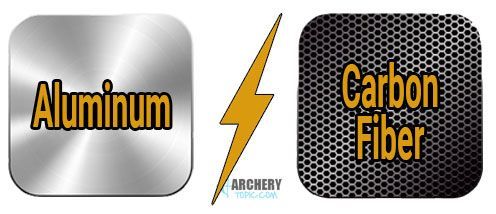Stort utvalg av mountainbikes. Rask levering og fri frakt. Store Rabatter her De Beste Priser Nå!
While both aluminum and carbon bikes will offer a little bit of flex in this way, carbon bikes will offer a far greater amount of power. This means carbon bikes feel much faster while accelerating and will be much more responsive when setting off.

See full list on outdoorgearlab. One of the most discussed aspects of carbon fiber frames is the weight savings over aluminum frames. It is hard to pin down a hard and fast rule about how much lighter a carbon frame is compared to an aluminum one.
For example, a Santa Cruz Bronson carbon frame may boast a 1. Pivot Switchblade might be 1. Then comes the elephant in the room. The aluminum Santa Cruz Bronson fram. The dampening effect of carbon, while minimal, will take some of the harshness out of the ride by soaking up some of the chatter that you get when riding a rough trail. This effect, however minimal it is, will give your hands and butt an amount of respite not offered by an.
While both frame materials are susceptible to catastrophic failure, carbon fiber frames tend to be stronger per pound than their aluminum equivalents. There are other materials out there that have stood the test of time, namely steel and titanium.
That difference of nearly 3grams is very significant towards MTB performance as the weight will add up every moment you are pedaling. Mountain bike frames made of carbon are certainly more expensive than aluminium ones, but for example, carbon wheels can be almost times more expensive than their alloy equivalents. Heat pressing, drilling, demolding, de-flashing, finishing, etc. Your riding style and the terrain you traverse will be the biggest factor in choosing your wheel style.
It is simply the nature of the material. Carbon will usually develop a crack. Aluminum will usually dent, deform, or flat-spot. On average, an aluminium bike will be cheaper than a carbon bike.
A carbon frame gives you an ultra-responsive bike that maximises the power transfer to the pedals. This has always been true but the gap between the two is definitely narrowing. This isn’t even a hard and fast rule anymore as there are times when a well specced aluminium bike will cost more than a moderately specced carbon bike.
This has been accelerated by the introduction of direct sales brands like YT Industries and Canyon who both offer carbon downhill bikes for under £000. For climbing and on the flat this will obviously always be an advantage as you have less friction and gravitational force to overcome.

However, there are certain schools of thought that would suggest for descending a bit of extra mass can actually help. Jacy Shumilak, Sam Hill’s mechanic, for example, reckons that 38. Again carbon takes the honours with this but worshipping at the church of stiffness could leave you battered and bruised.
A carbon bike will be snappier and respond briskly to input from the pedals or the bars, but when you’re up to speed it will be less able to soak up the trail chatter and could bounce around off big hits. It’s worth saying that these are big generalisations – feel itself is very subjective and different frame shapes and weaves react very differently to different trail cond.
Here’s the thing, mountain bikes break. They are put through immense stresses in their lives and inevitably some will fail. There are some brands that are more notorious for this than others but it doesn’t really come down to carbon vs aluminium.
An observation that may or may not reassure you is that we’ve seen an awful lot more broken riders than bikes in our time. The key thing to understand is that aluminium will deform whereas carbon will crack. A dented aluminium frame can still be ridd. The weight of the wheel determines the energy that you need to expend to overcome inertia to rotate the wheel.

The durability of the wheel is one of the biggest concerns when it comes to MTB wheels. Which is faster, carbon or aluminum/ You probably think you already know the answer, right? Yes, as carbon is obviously a softer material than aluminum, so damage can occur due to direct contact with rocks or the ground more easily.
No, as aluminum has a grain structure that can propagate cracks if surface damage occurs. What this meant is that for much of mountain bike history, stiffer meant better. One of the drawbacks to carbon handlebars is that they are just flat out more expensive, sometimes twice as expensive of some aluminum handlebars. Similar to carbon and aluminum rims, carbon is more expensive to manufacture.
Another negative to carbon bars is that they are not as durable. Should you buy a carbon mountain bike with cheap components or a top of the range aluminium MTB/ Can you ride downhill trails at bike parks with 120mm of sus. European supplier Dexcraft Composites states in its carbon vs. Stiffness can be good when bringing power in the pedals but also overtly stiff full carbon bikes can ride uncomfortable.
On trek for example the 9. X models are carbon an lower models alloy.